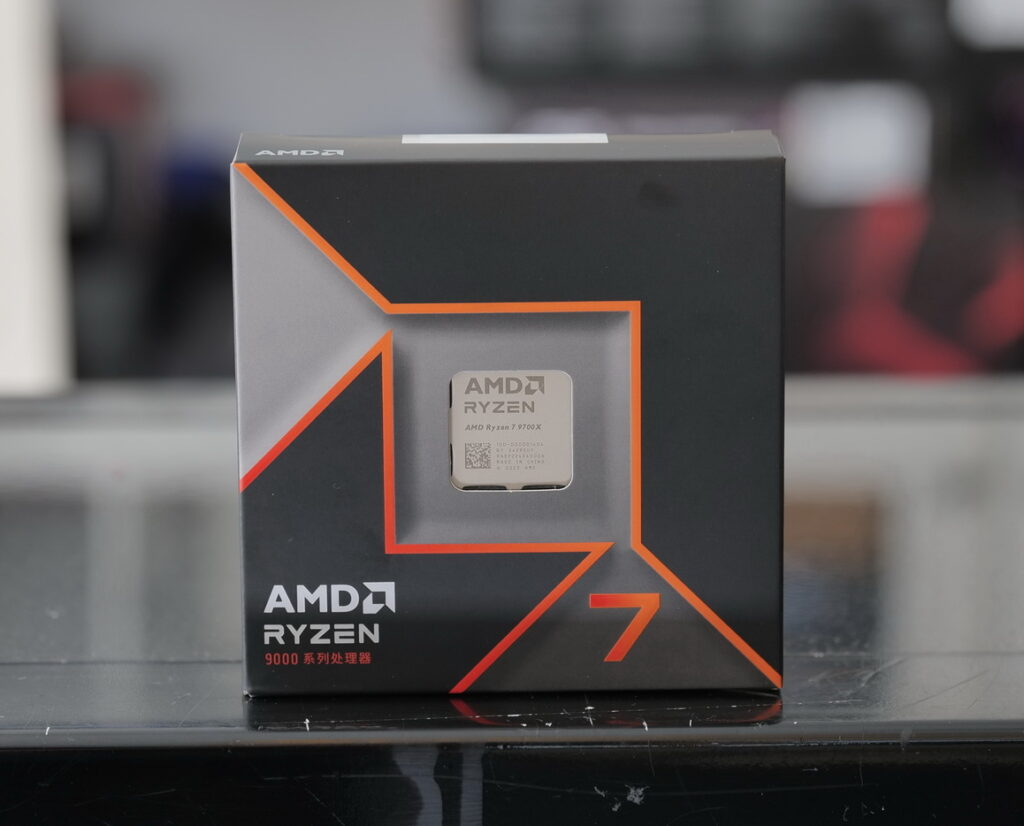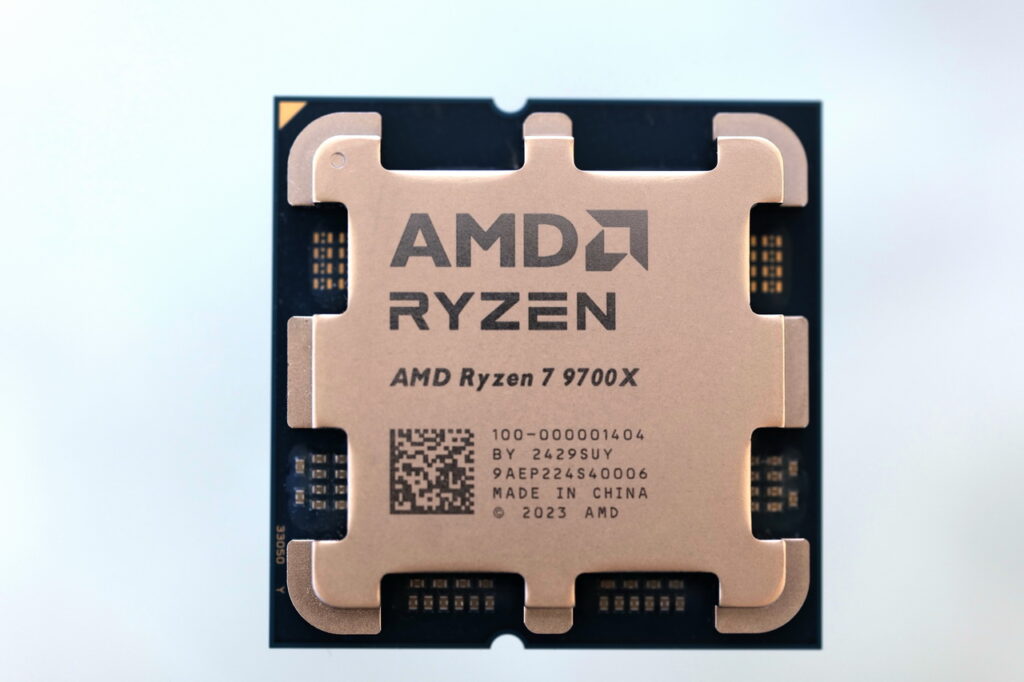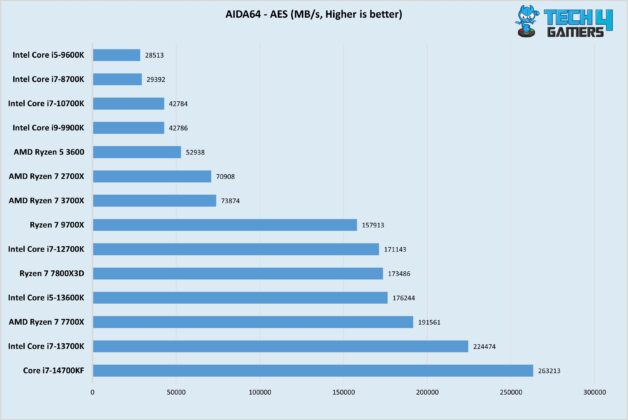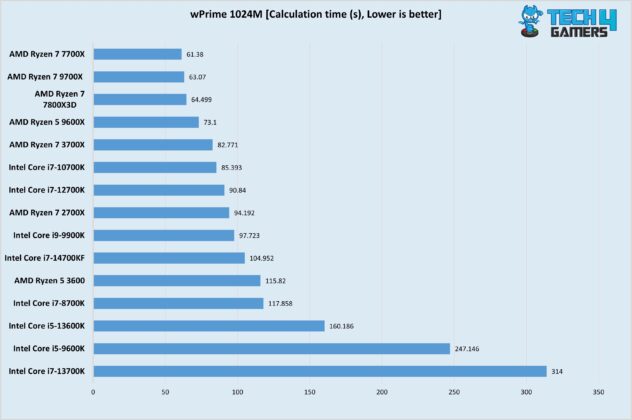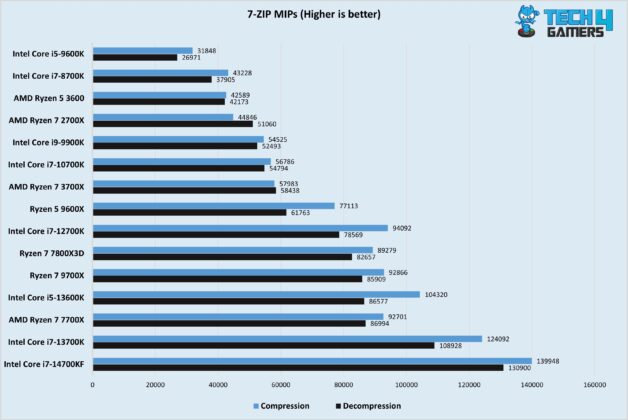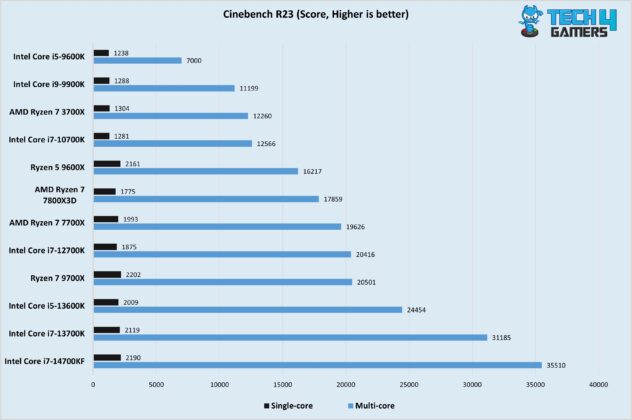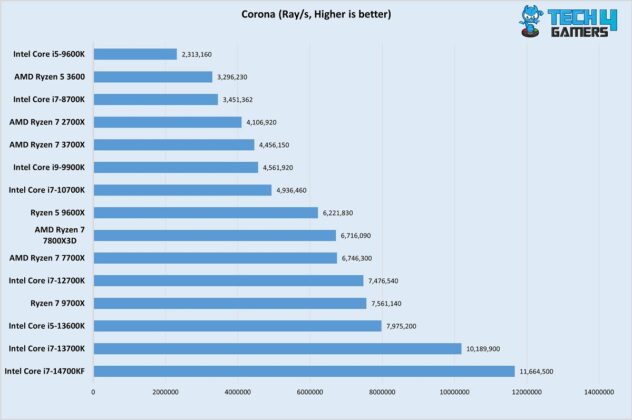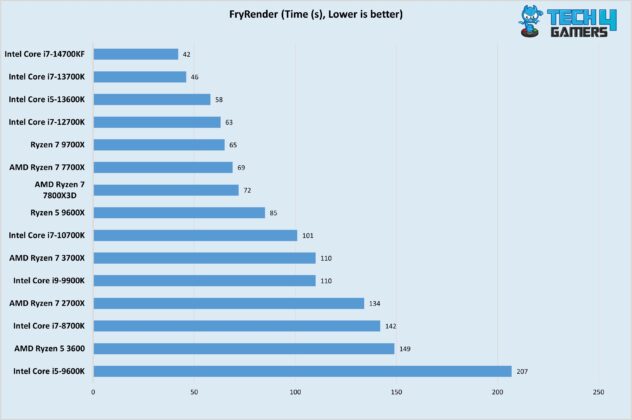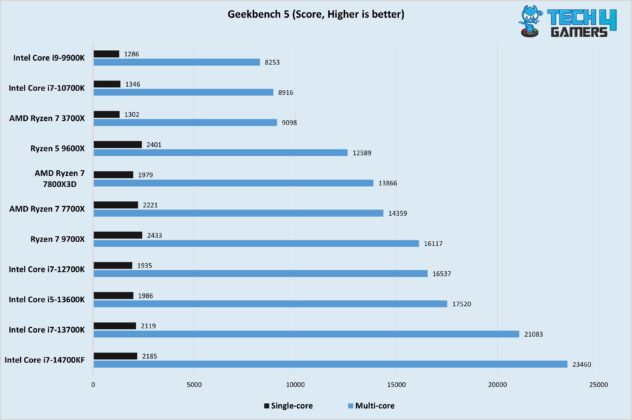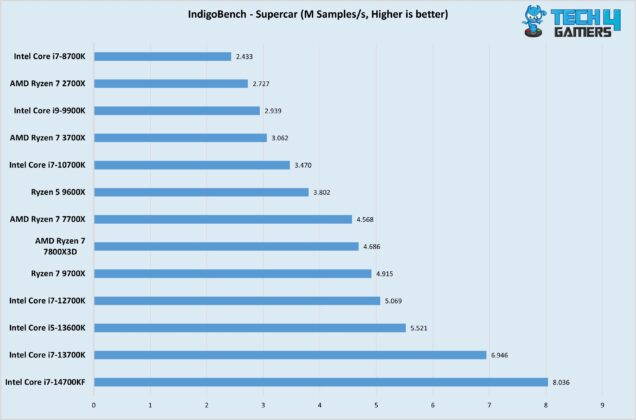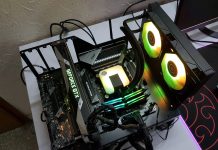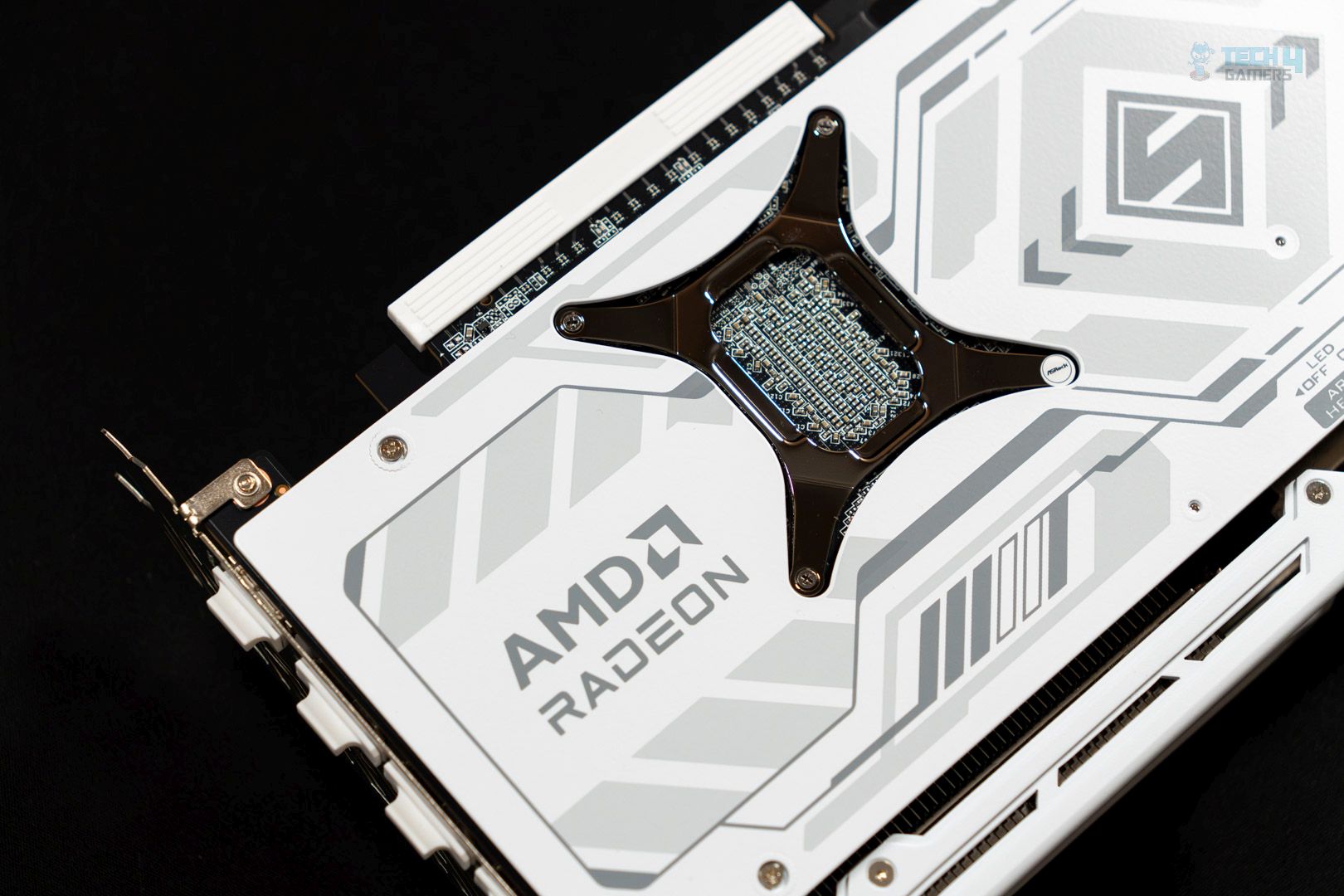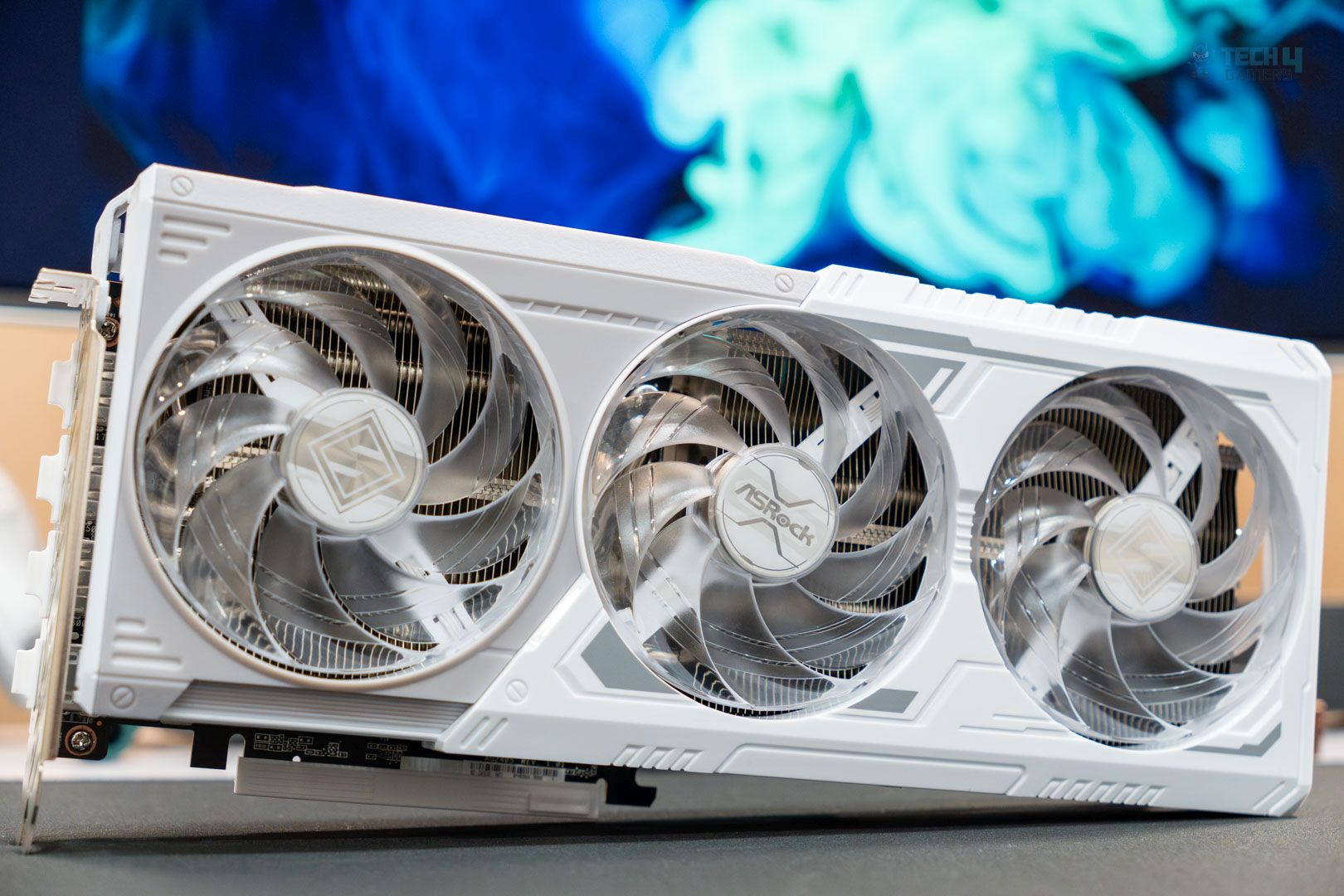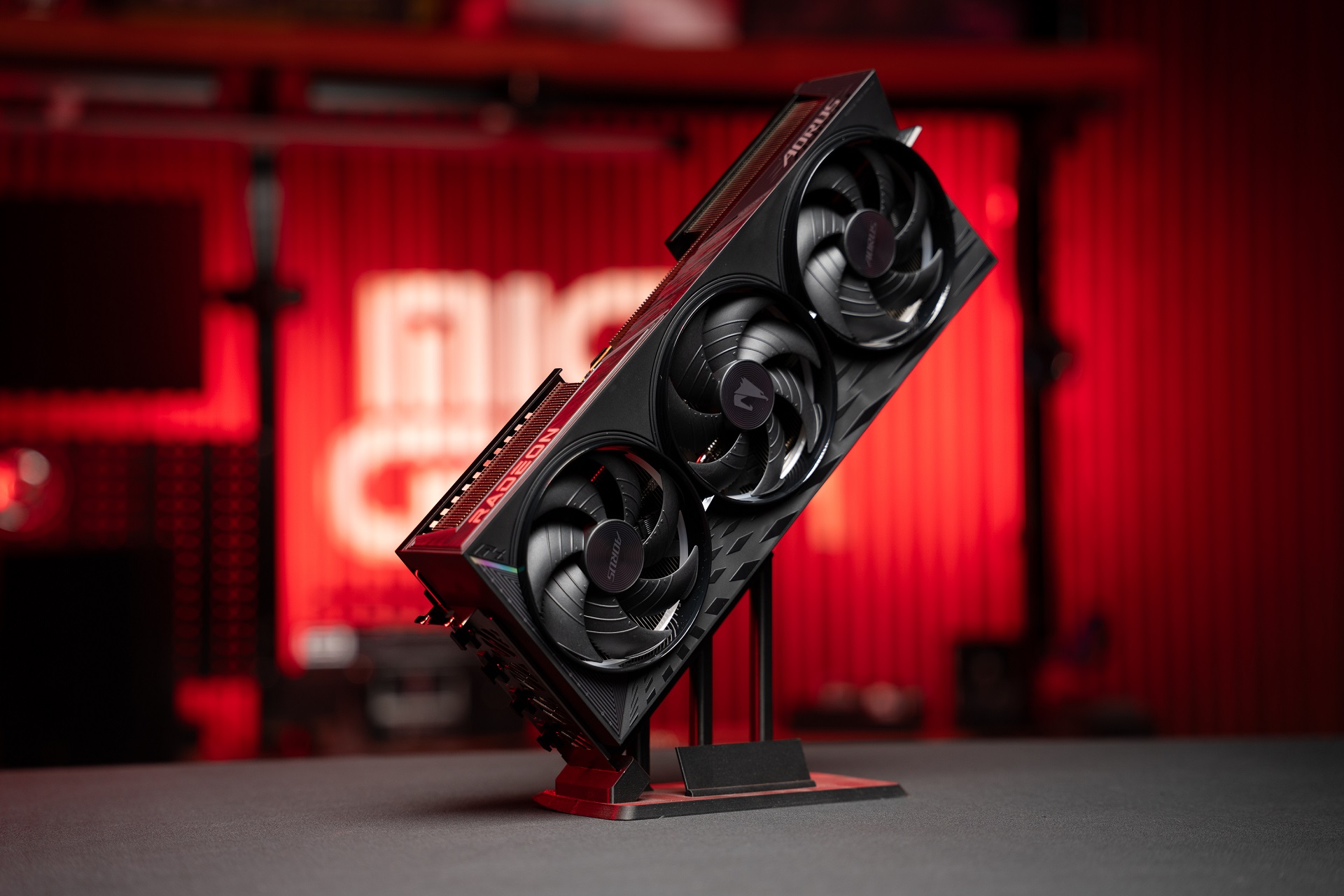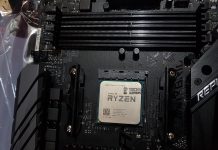Cool, Quiet, But Is It Worth It?
Review Summary
The Ryzen 7 9700X is AMD’s new mid-to-high ranger, only with $40 off the price tag and reduced power consumption numbers. With its 65W TDP, the CPU is also limited in clock speeds and could not perform up to the mark in most tests, including gaming. Single-core performance is incredible, though, and you get full AVX-512 support, but maximizing its performance will require you to remove its power limits through PBO.
Hours Tested: 9
Overall
-
Gaming - 8/10
8/10
-
Productivity - 7.5/10
7.5/10
-
Efficiency - 9.5/10
9.5/10
-
Value - 7.5/10
7.5/10
Pros
- Excellent single-core performance
- Power efficiency is amazing
- Doesn’t require high-end cooling
- AVX-512 support
- Overclockable
- $40 cheaper than predecessor
Cons
- Multi-core performance isn’t convincing
- Gaming performance has hardly improved
- 7800X3D beats it in value for gaming
- 13700K beats in value for multi-threaded tasks
- No stock cooler included
After testing the Ryzen 5 9600X, it’s time for me to look at the next available Zen 5 chip: the Ryzen 7 9700X. In terms of price and power target cuts, it follows the same pattern as the Ryzen 5 9600X. Does it show the same performance differences as the 9600X, though? Let’s find out.
Key Takeaways
- The Ryzen 7 9700X is ideal if you want top-class single-core performance and power efficiency and/or heavily use AVX-512 instructions. You should also get it if you’re willing to play with its power limits to unlock its full potential.
- Don’t get the Ryzen 7 9700X if you want the best multi-core performance or value out of your money (especially for gaming) or if you expect an included stock cooler.
- The Ryzen 7 9700X is AMD’s exceptionally power-efficient mid-to-high ranger. It shows decent performance gains in some tasks but fails to impress in most workloads.
Let’s look at the specifications and how they compare to its competitors.
| Product | Ryzen 7 9700X | Core i7-14700K | Ryzen 7 7800X3D |
|---|---|---|---|
| Manufacturer | AMD | Intel | AMD |
| Processing node | TSMC 4nm (Cores), TSMC 6nm (I/O) | Intel 7 (10nm) | TSMC 5nm (Cores), TSMC 6nm (I/O) |
| No. of cores | 8 | 20 (8P, 12E) | 8 |
| No. of threads | 16 | 28 | 16 |
| Base frequencies | 3.8 GHz | 3.4 GHz (P-cores), 2.5 GHz (E-cores) | 4.2 GHz |
| Max. turbo frequencies | 5.5 GHz | 5.5 GHz (P-cores), 4.3 GHz (E-cores) | 5 GHz |
| L1 cache | 640 KB | 640 KB (P-cores), 1152 KB (E-cores) | 512 KB |
| L2 cache | 8 MB | 28 | 8 MB |
| L3 cache | 32 MB | 33 MB | 96 MB |
| iGPU | AMD Radeon™ Graphics (2 cores) | Intel® UHD Graphics 770 (32 EUs) | AMD Radeon™ Graphics (2 cores) |
| Base power | 65W | 125W | 120W |
| Max. turbo power | – | 253W | – |
| MSRP ($) | $359 | $381 | $366 |
Notably, the Ryzen 7 9700X received a $40 lower price tag than its predecessor, the Ryzen 7 7700X. In this price segment, it competes with Intel’s Core i7-13700K, Core i7-14700K, and AMD’s Ryzen 7 7800X3D and Ryzen 9 7900X chips.
Looking to build a Ryzen 7 9700X system? Our guides may come in handy:
What’s New?
I discussed the major Zen 5 and platform-related changes in detail in our Ryzen 5 9600X review, so I’ll keep it short here.
Processing Node
The Zen 5 cores are based on TSMC’s new 4nm FinFET process, a step up over the 5nm process of the last gen. Each chip packs 8.31b transistors, compared to the 6.57b of Zen 4. However, the I/O die uses the 6nm TSMC node as before.
Zen 5 Architecture
With the new Zen 5 architecture, AMD has improved all aspects of the chips, namely the front end, execution window, and back end.
- Front-end: AMD has improved branch prediction (accuracy and latency), enhanced the instruction cache bandwidth, and added dual decode pipes to allow more instructions to be fetched from memory simultaneously.
- Dispatch and execute: We have a wider dispatch/retire queue (8-wide vs. 6-wide) to accommodate more instructions, a more unified ALU scheduler to issue instructions more efficiently to execution units, and a larger overall execution window.
- AVX-512 support: The floating-point unit (FPU) now features a full 512-bit data path for AVX-512 instead of the double-pumped 256-bit path of Zen 4.
- Load-store unit: The load-store unit features increased L1 cache capacity and bandwidth, a 12-way path, and improved data prefetching for quicker instruction fetching.
Reduced Power Targets and Clock Speeds
More shocking than the Ryzen 5 9600X’s TDP being cut to 65W is the 9700X’s to that same point. With the 65W TDP, the 9700X also has reduced base clock speeds (3.8 GHz vs 4.5 GHz). This essentially makes it the Ryzen 7 7700 (non-X) successor, as it also had a 65W rating and a base frequency of 3.8 GHz.
With these changes combined with the new Zen 5 architecture, AMD promises 15% better thermal resistance. The CPUs will also run a 7°C cooler at the same TDP.
New Chipsets
AMD is set to release 4 new chipsets as part of the 800-series lineup to support the Ryzen 9000 chips, but of course, the 600 series motherboards support them just fine.
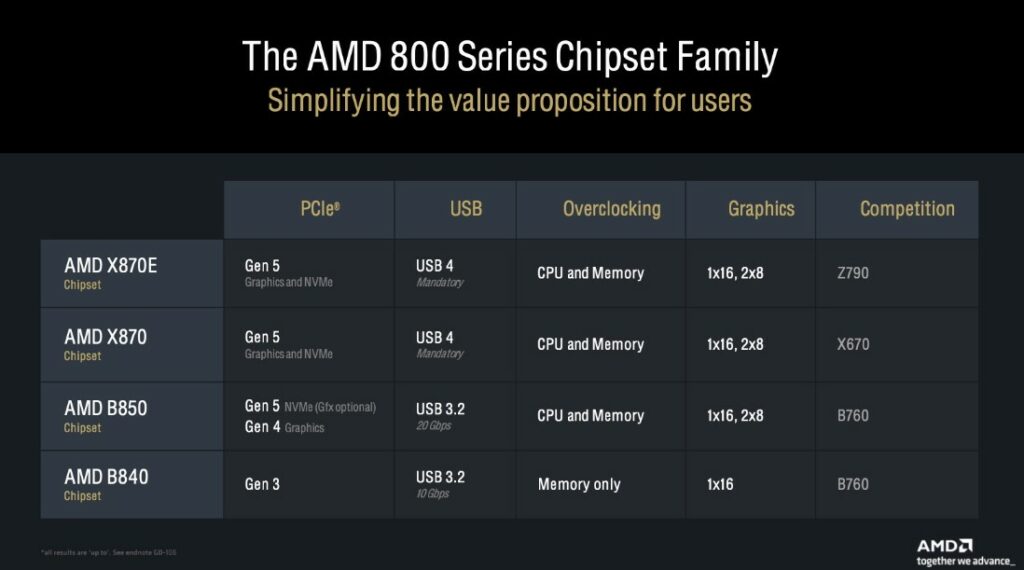
The four chipsets are X870E, X870, B850, and B840. USB 4 are mandatory in both X870 and X870E chipsets, which is also the key difference between X870 and B650E.
Overclocking Enhancements
AMD’s new AGESA firmware will support DDR5-8000 memory, and JEDEC DDR5-5600 memory is supported out of the box. We also get better-optimized performance profiles and support for on-the-fly memory overclocking.
AMD has introduced a new Curve Shaper feature for CPU overclocking. This feature adds to the Curve Optimizer functionality by allowing users to optimize voltage across 15 different frequency-temperature bands.
Unboxing and Design
The CPU uses the same box and design as the Ryzen 7000 series chips.
Test Bench
Let’s move on to testing. Here’s our current test bench for that:
- CPU Cooler: DeepCool Mystique 360
- Motherboard: MSI MEG X670E ACE
- GPU: MSI GeForce RTX 3090 Gaming X Trio
- Memory: 32 GB (2×16) XPG Lancer RGB DDR5 @ 6000
- Storage for OS: Western Digital SN850 Black 500GB NVMe SSD
- Storage for Software: Sabrent Rocket 4 Plus 2TB Gen4x4 NVMe SSD
- Storage for Games: Sabrent Rocket 4 Plus 4TB Gen4x4 NVMe SSD
- Power Supply: Fractal Design ION+ 2P 860W Platinum
- Operating System: Windows 11 Pro Build 22H2, Build 22621
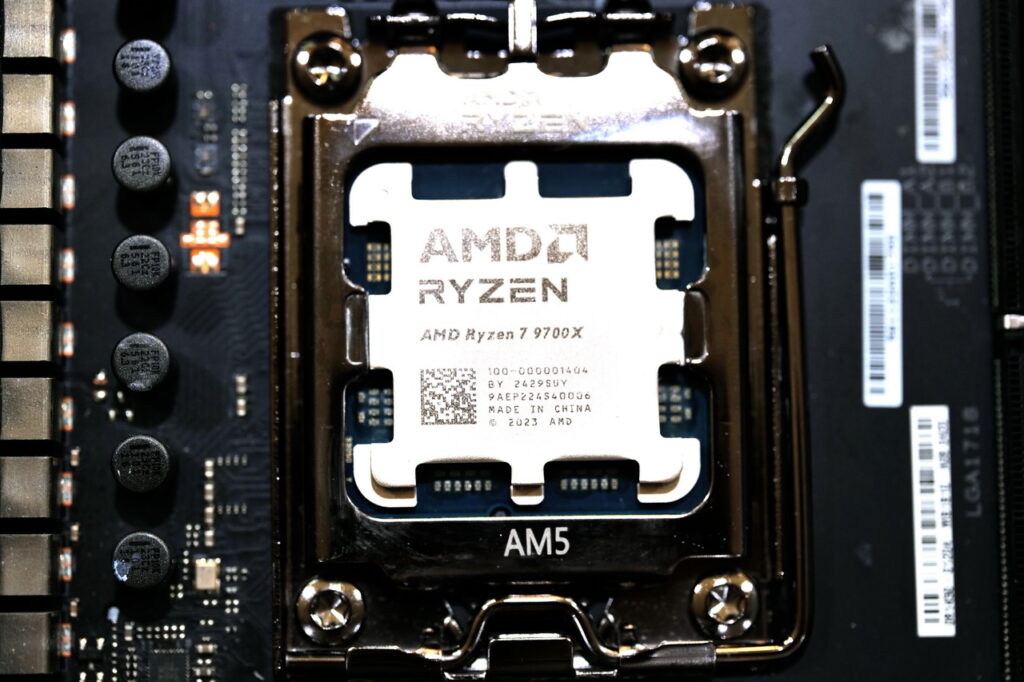
Here’s the CPU-Z screenshot for the Ryzen 7 9700X.
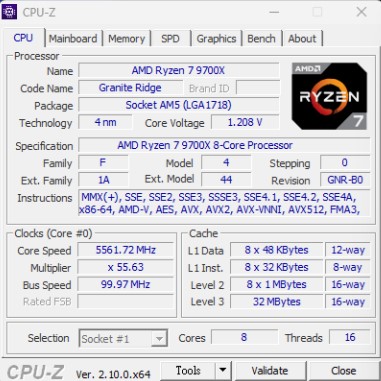
Testing Methodology
- Used default Auto and Stock settings for all tests.
- Disabled any default performance boost options in the BIOS.
- Loaded EXPO and manually adjusted DRAM timings and voltage for each test.
- Left all other voltages on Auto.
- Ran the cooling system’s pump and fans at full speed (100%) during testing.
- Kept the graphics card at its stock settings.
- Updated the motherboard’s BIOS to the latest version.
- Used Nvidia driver 517.48.
- Monitored all sensors with HWinfo64
General Benchmarks
First, a look at our general tests.
Overall, the Ryzen 7 9700X had a terrible outing in our general benchmarks, beaten by the Ryzen 7 7700X in every test.
Rendering Benchmarks
Let’s move on to the rendering benchmarks.
The Ryzen 7 9700X comfortably stood on top in single-threaded performance based on our rendering benchmarks. However, the multi-threaded performance hasn’t substantially improved (except in Geekbench 5). It also fell behind Intel’s trio of the 13600K, 13700K, and 14700KF chips in all multi-threaded tests, but that’s expected given the difference in core counts.
Gaming Benchmarks
How did the 9700X perform in gaming? Well, great, but not comparatively so.
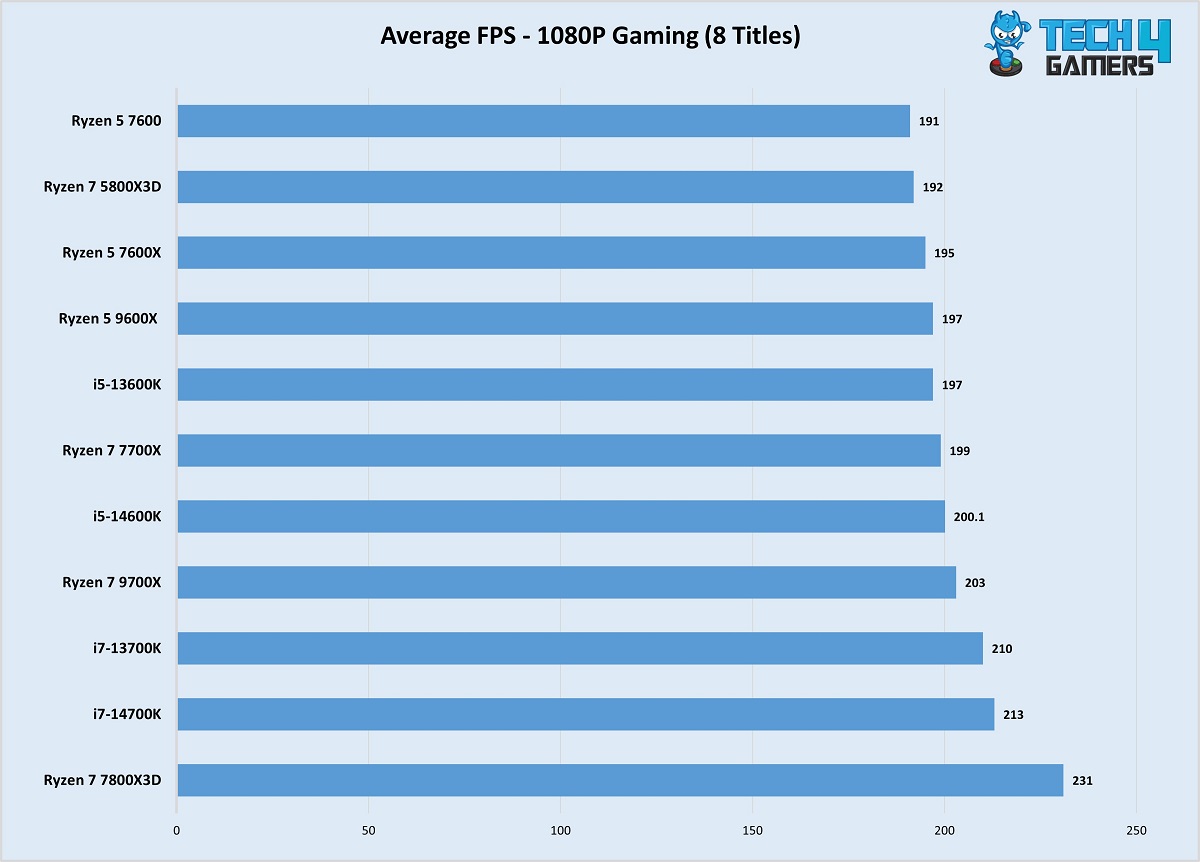
It only managed a 2% increase in performance over the last generation. As I noted in my testing, the problem clearly consists of power and clock speed constraints.
Thermals and Power Consumption
Lastly, we will look at how the CPU performed regarding power consumption.
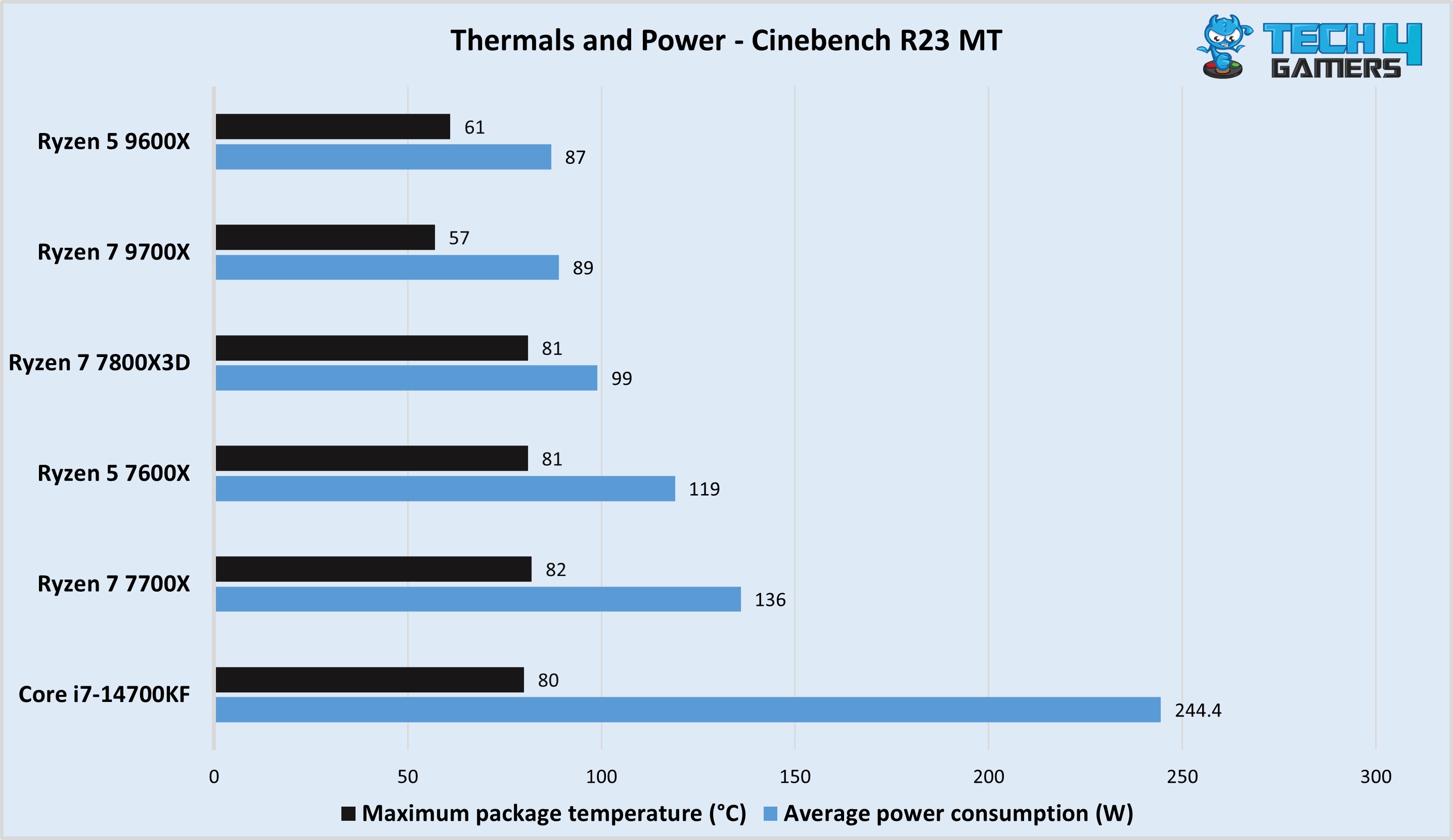
Stellar numbers from both Zen 5 CPUs in our list! Both 65W CPUs consumed under 90 watts on average, with the 9700X at 89 watts. Moreover, the Ryzen 7 9700X actually ran 4°C cooler than the 9600X, which shows its incredible efficiency. When you compare to the last generation’s 7700X, these numbers become even more impressive given that the 9700X was ahead in all but our general benchmarks, which only test specific capabilities of the chip.
At 57°C under load, I wonder how much better the CPU could have done at a 105-watt power target. There is plenty of thermal headroom here, with the CPU’s Tjmax at 95°C. Thus, a higher TDP and clock speeds out of the box would have helped the CPU, especially in our gaming benchmarks. If you ask me, AMD missed an opportunity here, especially since AMD was already well ahead of Intel regarding power efficiency in their gaming chips.
Is The Price Ideal?
Just like with the Ryzen 5 9600X, I can’t say the CPU’s $359 price tag is ideal, even though it is $40 less than the Ryzen 7 7700X at launch. This is an 11% difference, while the CPU only showed an 11% (or more) uplift in none but two tests. It was beaten in all our general benchmarks and only took a 2% lead in 1080P gaming performance.
Let’s also not forget Intel’s 13600K, 13700K, and 14700K CPUs, all of which are significantly cheaper and perform better in most workloads. The only trade-off with them is their power consumption, of course.
Should You Buy It?
To be or not to be?
Buy It If:
✅Power and thermal efficiency is important: For the performance you get, the Ryzen 7 9700X runs unbelievably cool and consumes very little power, even under full loads.
✅Your workloads are mostly single-threaded: While it performs quite well in multi-threaded workloads, too, it really takes the crown in single-threaded performance.
✅You need AVX-512 support: With Zen 5, AMD has added a 512-bit pipeline for AVX-512 workloads.
Don’t Buy It If:
❌You’re looking for a pure gaming CPU: For gaming, the 7800X3D from AMD is still the king and comes with a cheaper price tag than the 9700X.
❌You have no budget for aftermarket cooling: The CPU does not come with a cooler, which I couldn’t make sense of, considering AMD has always provided them with 65W chips.
❌You need top multi-core power: For multi-threaded workloads, Intel’s Raptor Lake unlocked i5s and i7s will serve you much better at cheaper or similar price points.
My Thoughts
The Ryzen 7 9700X had potential—no, it has potential, in fact—but it is highly limited by its power limitations. These limitations make it amazingly power-efficient, of course, but they also mean it couldn’t show enough gains in most tasks to really justify the purchase. This also meant that it fell behind its predecessor in some of our benchmarks.
AMD did not need to limit the CPU to 105 watts, especially since it puts it in the same category as the 6C/12T 9600X. They were also already ahead of Intel in power efficiency, anyway. The 7700X, for example, consumed 136 watts in our Cinebench R23 test, which is much less than competing CPUs like the 13600K.
In terms of price, the $40 price cut compared to its predecessor doesn’t help much either; the R7 7700X costs around $294 now, while it’s only beaten by 12% in the best-case scenario in our tests. Intel’s 13700K is also far better (cheaper, better gaming, and multi-core performance), while the 14700K takes multi-core performance even further ahead for $381.
At the time of writing, I would only recommend the 9700X to those coming from an older generation and who are primarily after solid single-core performance with exceptional efficiency. Of course, everything changes if you know your way around overclocking, removing the power limits and really letting this chip breathe can give it significant performance gains. Who knows? Maybe AMD will release a patch to increase the power limits by default.
Thank you! Please share your positive feedback. 🔋
How could we improve this post? Please Help us. 😔
[Reviews Specialist]
Usman Saleem brings 8+ years of comprehensive PC hardware expertise to the table. His journey in the tech world has involved in-depth tech analysis and insightful PC hardware reviews, perfecting over 6+ years of dedicated work. Usman’s commitment to staying authentic and relevant in the field is underscored by many professional certifications, including a recent one in Google IT Support Specialization.
8+ years of specialized PC hardware coverage
6+ years of in-depth PC hardware analysis and reviews
Lead PC hardware expert across multiple tech journalism platforms
Certified in Google IT Support Specialization
Get In Touch: usman@tech4gamers.com


 Threads
Threads
